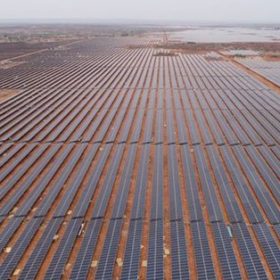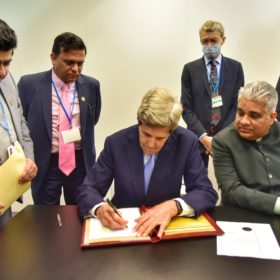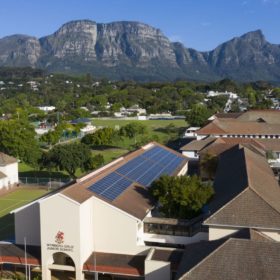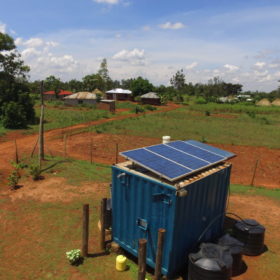India has reached 46,247 MW of installed solar capacity as of October 31
Rajasthan (8,644 MW), Karnataka (7,483 MW), and Gujarat (6,052 MW) lead in solar installations.
USA becomes 101st member of the International Solar Alliance
The International Solar Alliance is an international intergovernmental treaty-based organization headquartered in India that aims to reduce the cost of solar technology and mobilize finance to accelerate solar adoption in its member countries.
Turbocharging rural entrepreneurship through distributed renewable energy
A robust distributed renewable energy ecosystem with a strong domestic industry will help provide good-quality, reliable electricity to rural households and enterprises and thus turbocharge green entrepreneurship—paving the way for a self-reliant India.
Punjab tenders off-grid solar
Installers have until September 23 to submit their bids to set up different capacities of off-grid solar plants in Bathinda city. Techno-commercial bids will open on September 24.
Responsible land-use for solar, wind plants could smooth the path for India’s energy transition
India will require large swaths of land for the huge expansion of renewable energy capacity over the coming decades. The energy transition requires planning for proper siting of these plants and solutions like agrivoltaics, distributed energy systems, and offshore wind to reduce land-use conflicts.
International group offers $68m loans for struggling off-grid clean energy distributors
‘More than 90’ suppliers of appliances such as solar lanterns and home solar panels, as well as mini-grid installers, will be offered low-interest credit by an assortment of government-backed and privately-financed entities.
Indian Railways could power one in four trains with its own solar panels
Feeding solar electricity directly from its own panels into overhead lines on a fully-electrified rail network would be more cost-effective for the state-owned company than buying that green power from the grid, according to a new study.
India added 2,110 MW of solar in April-May-June period
Despite rising module prices and lockdown restrictions, the nation maintained its quarterly solar capacity installation above the 2 GW level in the second quarter.
Growatt unveils off-grid inverter
The 3 kW inverter has an efficiency of 95% and features a surge power of 9000 VA. According to the manufacturer, the device is compatible with mainstream lead-acid and lithium-ion batteries.
Uttar Pradesh tenders 3 MW off-grid solar
The scope of work includes supply, erection, testing, commissioning, and five-year warranty maintenance of the standalone solar photovoltaic power generators. Bidding closes on August 2.














